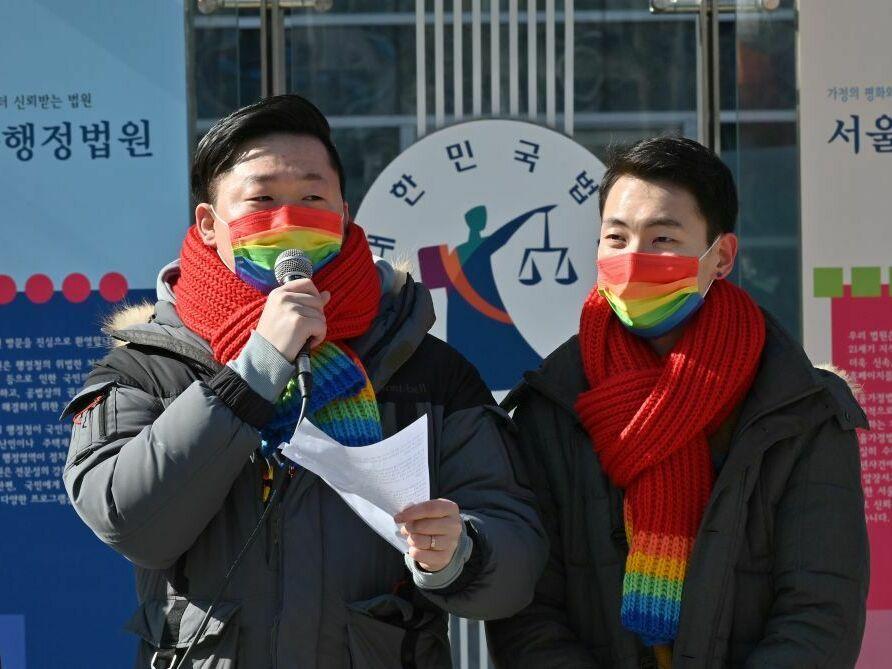Section Branding
Header Content
In a first, a South Korean court says same-sex partners should get government benefits
Primary Content
A South Korean appeals court ruled Tuesday that government health insurance should offer spousal coverage to same-sex couples.
The landmark ruling is the country's first legal recognition of social benefits for same-sex couples. South Korea has not legalized same-sex marriage or civil unions.
The 32-year-old plaintiff So Seong-uk sued the National Health Insurance Service in 2021, after the agency revoked his status as a dependent to his partner Kim Yong-min.
So and Kim held a wedding to publicly declare their relationship in 2019. The next year, the health insurance agency accepted Kim's request to list So as his dependent, on the same grounds that it provides spousal benefits to heterosexual couples in de facto marriage.
But when the media started to report the couple's story, the agency annulled the decision, saying it was a "mistake," and that So did not qualify. A lower court ruled in favor of the agency in 2021, saying same-sex unions cannot be deemed the same as heterosexual unions.
That judgment was overturned at the appellate court on Tuesday. Both groups are "the same in essence" in that they form "emotional and economic community" outside the legally defined family relationship, the court said in its verdict. To recognize dependent status in one group and not in the other based on sexual orientation "constitutes a discriminatory treatment."
The court admitted that explicit and implicit discriminations against sexual minorities have existed in South Korea. But the country's laws "make it clear that sexual orientation must not be grounds for discrimination," it said, citing a 2001 law prohibiting discrimination in recruitment, education and commercial services. Discrimination in public services also "has no place to stand," the court said.
The National Health Insurance Service says it will appeal the ruling to South Korea's Supreme Court.
In a press conference after the ruling, the plaintiff so said in a tearful voice that "our love won and is winning."
"When I first met Seong-uk ten years ago, we couldn't find any official expression to describe our relationship," his husband Kim said. "Today, at last, our relationship is recognized in the legal system."
Kim noted that Tuesday's victory is "just one of 1,000 rights that a legal marriage guarantees" and called for legalization of same-sex marriage.
In recent years, some same-sex couples in Korea like So and Kim are holding wedding ceremonies. Others have traveled overseas to get marriage licenses issued by countries that recognize same-sex marriage, or attempted to register their marriage at local public offices despite the expected denial.
A small number of lawmakers have tried to legislate laws for same-sex civil unions in the past decade, but no bill has even been formally introduced to in legislature because of fierce opposition.
Lawyer Park Han-hee, who represents So Seong-uk, admits that the ruling this week may not lead to expansion of other social benefits, such as pensions, because of differences in legal interpretation. But Park is still optimistic that the verdict will serve as a "crucial evidence" in the fight for broader rights, including marriage equality.
"If the court's logic is that exclusion of same-sex couples from health insurance is unjust, then naturally, their exclusion from marriage should also be seen as unjust," Park said.
Copyright 2023 NPR. To see more, visit https://www.npr.org.

